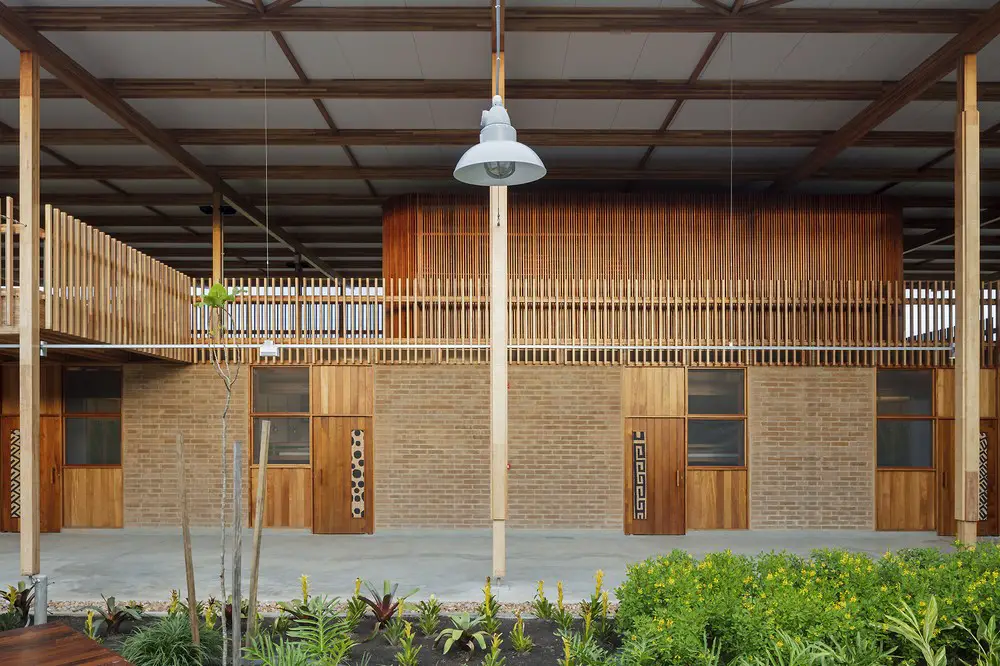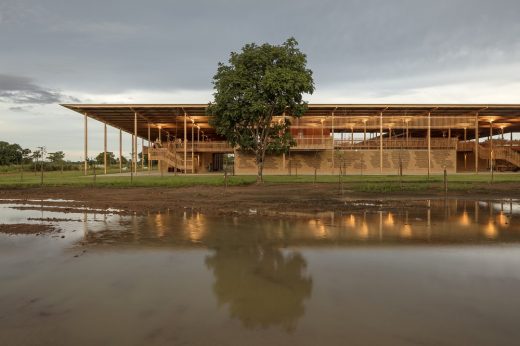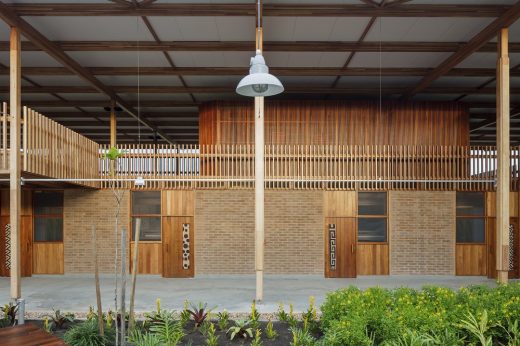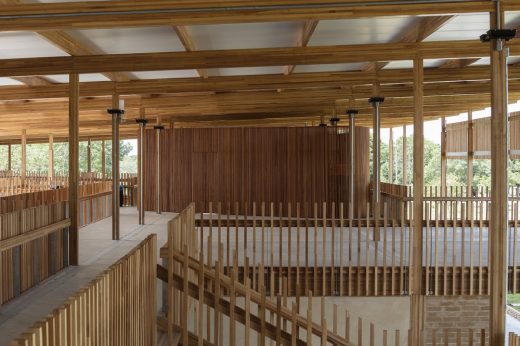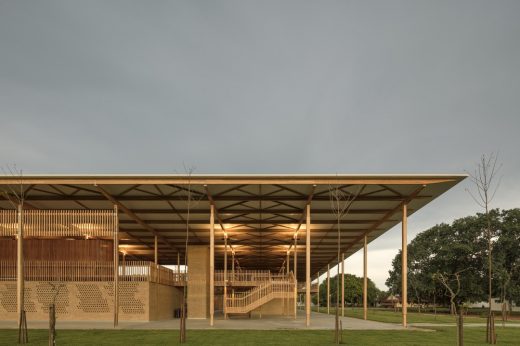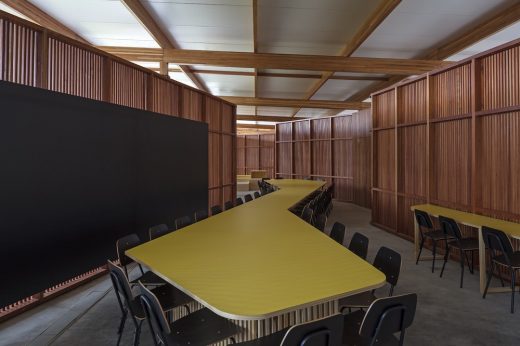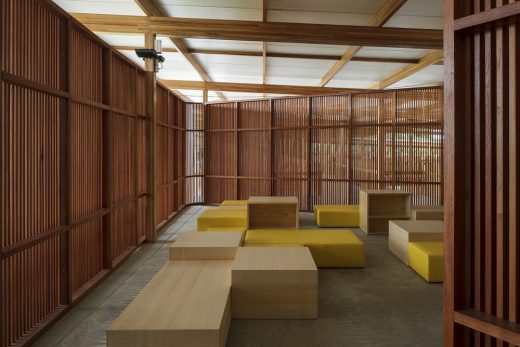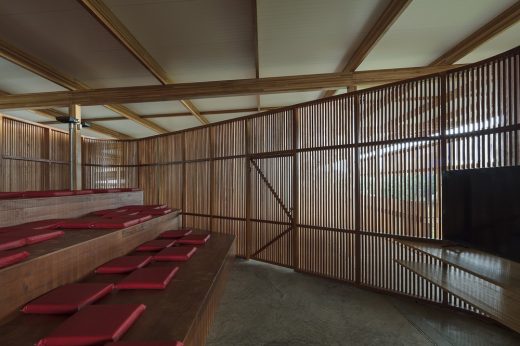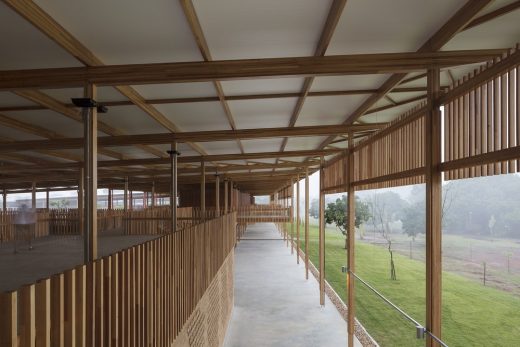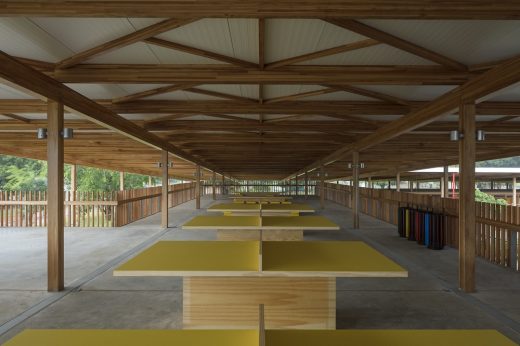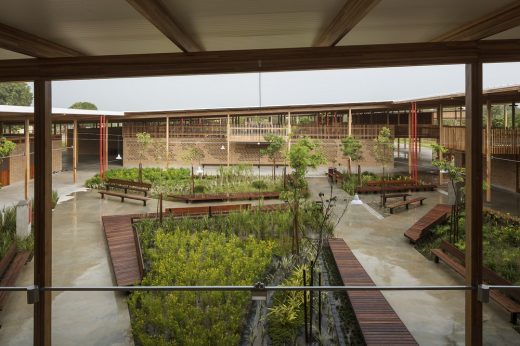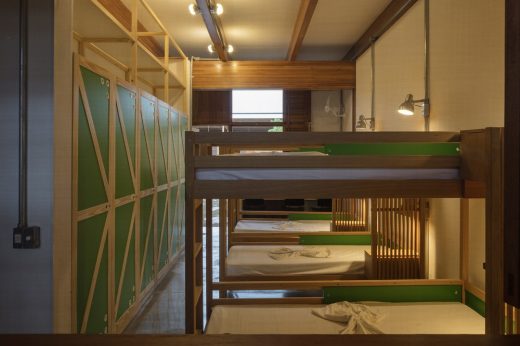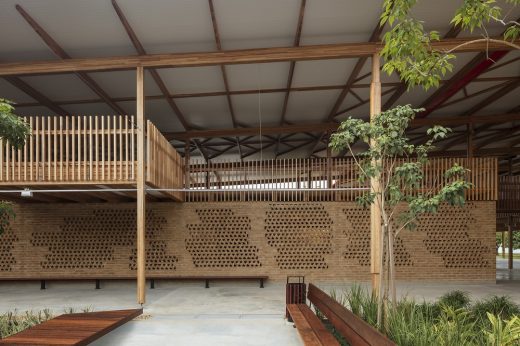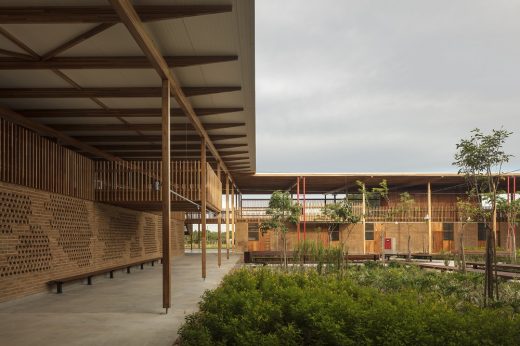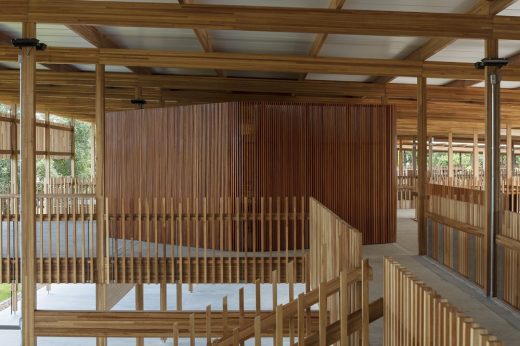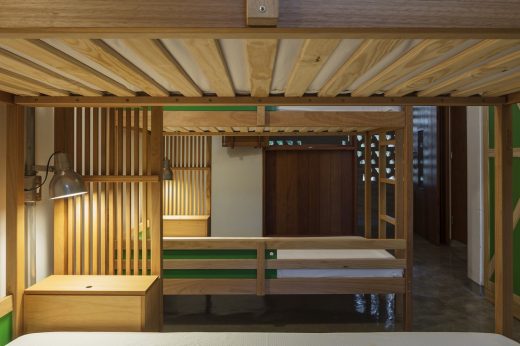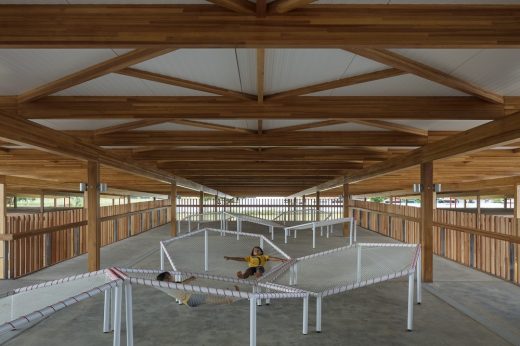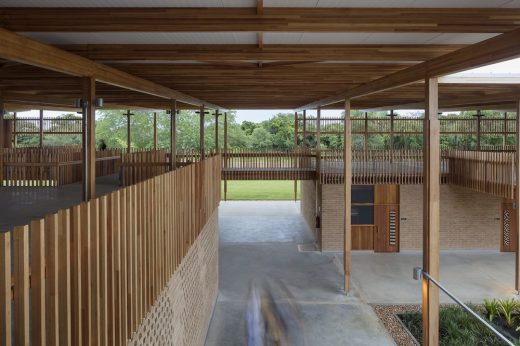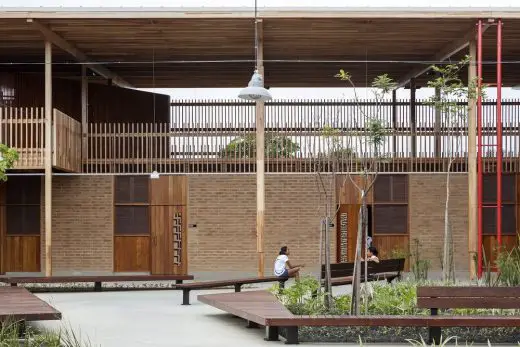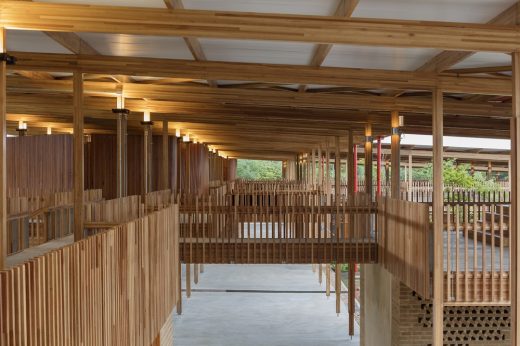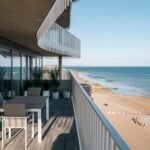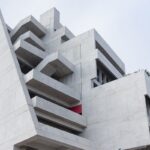RIBA International Prize Winner 2018, Architecture Award Shortlist, Brazilian Building, Architect
RIBA International Prize 2018 Winner
Children Village Brazil – Royal Institute of British Architects Architectural Awards Winner News
full set of photos + more text added 27 Nov 2018 ; 23 Nov 2018
RIBA International Prize 2018 Winner
Children Village in Brazil – Winner of RIBA International Prize 2018
Architects: Aleph Zero + Rosenbaum
Children Village Dormitory Complex wins
A boarding school for disadvantaged children in a remote forest area of Brazil has won this year’s award for the world’s best new building.
Photos © Leonardo Finotti (unless otherwise stated)
The Children Village dormitory complex, which provides accommodation for 540 children, received the international RIBA award for excellence this week.
It is based on a farm surrounded by dense rainforest in Tocantins state.
The building is made mostly from timber glued together and features three landscaped courtyard gardens.
Marcelo Rosenbaum e Adriana Benguela:
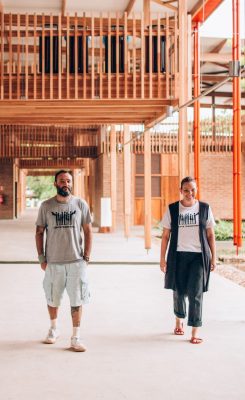
photo : Diego Cagnato
The complex, designed by Brazilian architects Website: Aleph Zero and Rosenbaum, was chosen from a shortlist of four exceptional new buildings by a grand jury chaired by renowned architect Elizabeth Diller (DS+R).
The RIBA International Prize is awarded every two years to a building that exemplifies design excellence and architectural ambition, while also delivering meaningful social impact. It is one of the world’s most rigorously judged architecture awards, with every longlisted building visited by a group of international experts.
Marcelo Rosenbaum architect, Brazil:
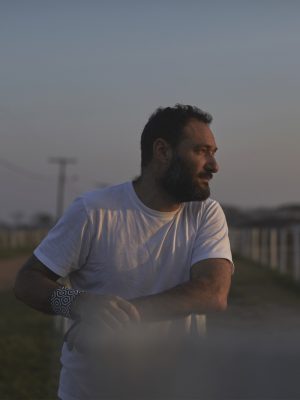
photo : Loiro Cunha
“Children Village provides an exceptional environment designed to improve the lives and wellbeing of the school’s children,” said RIBA President Ben Derbyshire. “It illustrates the immeasurable value of good educational design.”
Children Village provides boarding accommodation for 540 children aged 13 to 18 attending the Canuanã School. Pupils come from remote areas of the country, some travelling many hours by boat. Funded by the Bradesco Foundation, Children Village is one of forty schools run by the foundation providing education for children in rural communities across Brazil.
For the architects, Gustavo Utrabo and Petro Duschenes from Aleph Zero and Marcelo Rosenbaum and Adriana Benguela from Rosenbaum, the project shows how architecture can be a tool for social transformation. They worked closely with the children to identity their needs and desires for their school. They wanted to create an environment that could be a home away from home, where children could develop a strong sense of both individuality and belonging.
“It has been a joy to see the children making the building their own and adapting the space to fit their needs,” said Utrabo and Duschenes. “We wanted to be prescriptive without being overbearing, to be supportive without being patronising, and to encourage growth and development without cosseting it.”
Covering an area of almost 25,000 m2, Children Village is organised into two identical complexes: one for girls and one for boys. Residences are centered around three large, open and well-shaded courtyards at ground level, where dormitory accommodation is located. On the first floor, there are flexible communal spaces ranging from reading spaces and television rooms, to balconies and hammocks, where the children can relax and play.
For Rosenbaum and Benguela, “The space facilitates the interaction between public and private, and socialising between the collective, nature and the individual, reconnecting children and young people to their origins and with their surrounding ecosystem.”
The ecosystem around the complex – particularly the tropical climate, where temperatures reach the mid-40s in summertime – was one of the major challenges cleverly addressed by the architects. The large canopy roof, the structure of which is made up of cross-laminated timber beams and columns, provides shading. The overhanging canopy design has created an intermediary space, between inside and out, giving the effect of a large veranda overlooking the surrounding landscape and creating a comfortable environment with no need for air conditioning.
Combining a contemporary aesthetic with traditional techniques, Children Village has been described by the judges as “reinventing Brazilian vernacular”. The building is constructed with local resources and based on local techniques. Earth blocks handmade on site were used to construct the walls and latticework, chosen for their thermal, technical and aesthetic properties. As well as being cost effective and environmentally sustainable, this approach creates a building with strong connections to its surroundings and with the community that it serves.
Gustavo Utrabo and Pedro Duschenes, directors of AlephZero, said: “We are thrilled to have been awarded the RIBA International Prize 2018. It has been a joy to see the children making the building their own and adapting the space to fit their needs. Kids will make their own play and have imagination to burn. We wanted to be prescriptive without being overbearing, to be supportive without being patronising, and to encourage growth and development without cosseting it.”
Marcelo Rosenbaum and Adriana Benguela, directors of Rosenbaum, said: “We are deeply honored to have been offered the RIBA International Prize. This award strengthens our understanding of architecture as a tool for social transformation, a tool that transcends construction and creates a deep connection between young people and their ancestors and knowledge. The space facilitates the interaction between public and private, and socialising between the collective, nature and the individual, reconnecting children and young people to their origins and with their surrounding ecosystem.”
RIBA President Ben Derbyshire, said: “I am delighted that Aleph Zero and Rosenbaum have been recognised for their impressive work. Aleph Zero are philosophical and thoughtful architects and Rosenbaum is known for their work with local communities. Children Village, provides an exceptional environment designed to improve the lives and wellbeing of the school’s children, and illustrates the immeasurable value of good educational design.”
Denise Aguiar, director of the Bradesco Foundation, said: “We are honoured and pleased to receive this award from such a remarkable institution. Architecture, for us, has a fundamental role to play in providing education and wellbeing. The project was driven by our mission to use design and architecture to transform the lives of young people in Brazil, whilst respecting our history and local culture. The project reflects the guiding principles of the Bradesco Foundation in forming ethical and conscientious citizens. The students have benefited from a schooling environment that provides comfort and privacy and makes the building their own.”
The RIBA International Prize 2018 jury was comprised of architects Elizabeth Diller (DS+R), Kazuyo Sejima (SANAA), Joshua Bolchover (Rural Urban Framework), Gloria Cabral (Gabinete de Arquitectura) and Peter Clegg (Feilden Clegg Bradley Studio).
Photographs © Leonardo Finotti
About Aleph Zero:
Formed by the complementary visions of Gustavo Utrabo and Pedro Duschenes, Aleph Zero is a Brazilian practice interested in constructing a critical and interpretive reading of the world through architecture. Among the office’s main awards are the RIBA Award for International Excellence and RIBA International Emerging Architect (2018), Archdaily Building of the year (2018), APCA – Associação Paulista de Críticos de Arte (2017) , Tomie Ohtake AkzoNobel (2017), chosen finalist in Mies Crown Hall Americas Prize Emerge – IIT College of Architecture Chicago (2018) and third place in Oscar Niemeyer Prize for Latin American architecture (2018). Aleph Zero has had its work exhibited on several occasions, the main one being the Brazilian pavilion of the Architecture Biennale of Venice (2018).
About Rosenbaum:
Rosenbaum is a Brazilian architecture and design firm concerned with the cultural traditions and identity of Brazil. Each project is designed to connect to the past whilst celebrating new knowledge and expressions of the culture of the peoples of Brazil. Rosenbaum work with the A Gente Transforma Institute, a collective who have developed a methodology which uses design to drive social transformation order to bring new significance and inclusive processes to the design and architecture chain.
Applications for the RIBA International Prize 2020 will open in July 2019.
RIBA International Prize 2018 Winner images / information from Royal Institute of British Architects / Rosenbaum
Previously on e-architect:
12 Sep 2018
RIBA International Prize 2018 Shortlist
The four buildings in the running for the RIBA International Prize 2018:
Central European University (Phase 1), Budapest, by O’Donnell + Tuomey
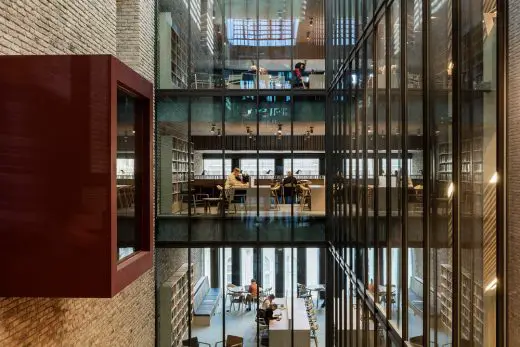
photo © Tam Bujnovszky
Children Village, Brazil, by Aleph Zero + Rosenbaum
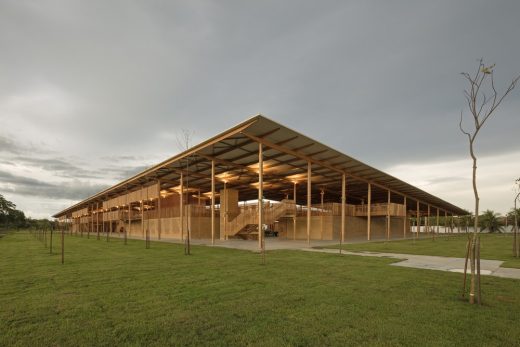
photo © Leonardo Finotti
Toho Gakuen School of Music, Tokyo, by Nikken Sekkei
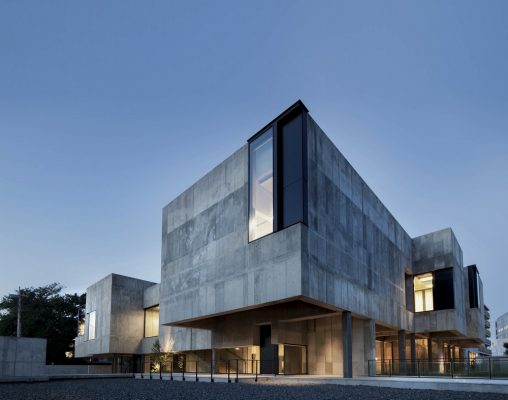
photo © Harunori Noda
II Bosco Verticale (Vertical Forest), Milan, by Boeri Studio
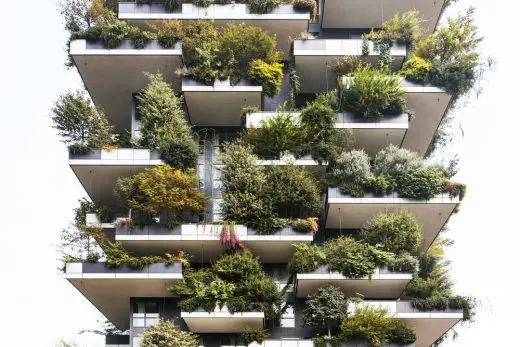
photo © Giovanni Nardi
RIBA International Prize Shortlist 2018
Website: RIBA International Awards 2018
RIBA International Prize 2018 Winner images / information from Royal Institute of British Architects
Location:London, UK
RIBA Architecture Awards
photo © Andrew Lee
RIBA International Awards 2011
photo : Nigel Young / Foster + Partners
Website: RIBA Awards 2016
International Architecture Awards
International Architecture Awards 2016
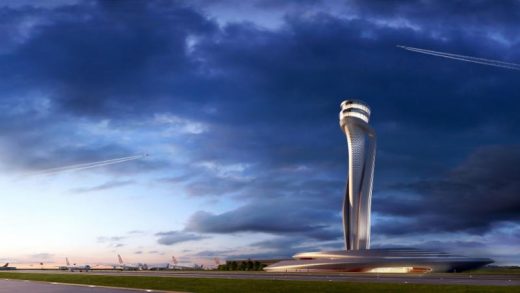
image from architect
International Architecture Awards 2015
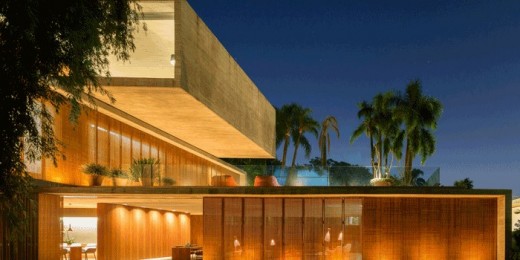
image from architect
International Architecture Awards 2013
International Architecture Awards 2012
International Architecture Awards 2011
International Architecture Awards 2009
International Architecture Awards 2008
International Architecture Awards 2007
Comments / photos for the RIBA International Prize 2018 Winner page welcome
RIBA International Prize 2018 Winner – page
Website : RIBA International Prize 2018 Winner – Children Village in Brazil by Aleph Zero + Rosenbaum

